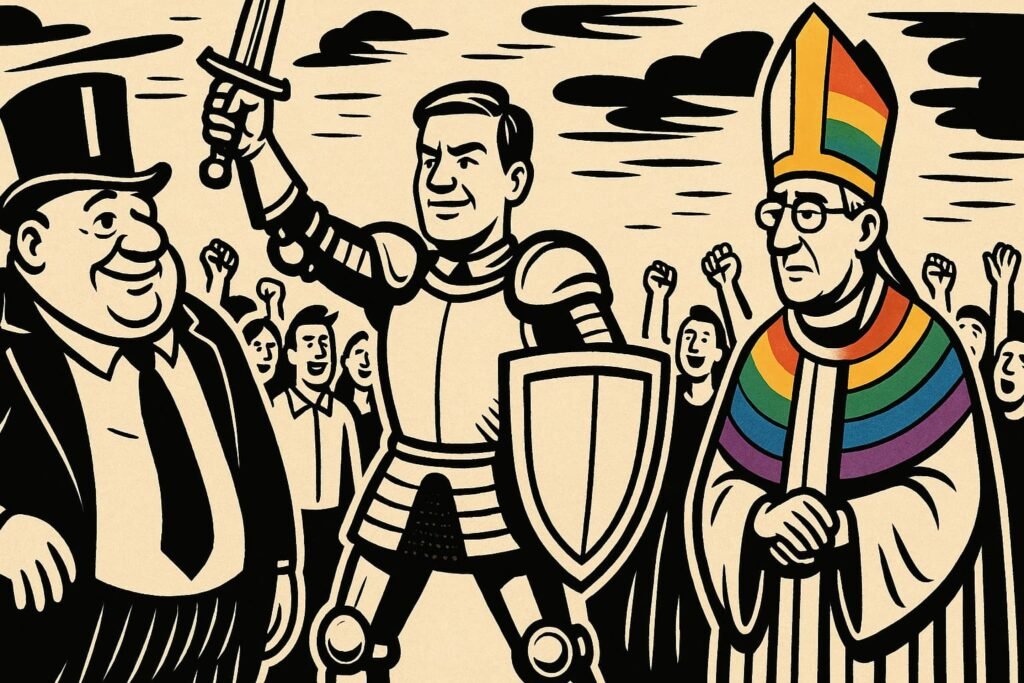The Return of the Strong Political Leader Explained
From Merchants & Priests to Modern Warriors
Once upon a time, emperors and generals set the rules. Then merchants grew rich, priests preached morality, and politicians became managers in suits. Today, the pendulum is swinging back. Across the world, strong leaders are returning — not as kings, but as modern warriors, reclaiming space from corporations and ideologues.
Table of contents
What Is a “Strong Political Leader”?
A strong leader is more than a personality cult. It’s the revival of the Warrior role in society’s balance of power:
- Merchants run business and finance.
- The Church (now ideology) sets moral codes.
- Warriors (political leaders) enforce sovereignty.
When the merchants and priests get too powerful, history shows a correction. That’s the moment we’re in now.
How It Shows Up in Practice
- Donald Trump (U.S.): defied corporations and woke ideology with raw nationalism.
- Viktor Orbán (Hungary), Giorgia Meloni (Italy), Marine Le Pen (France): stress sovereignty and family over EU technocracy.
- Geert Wilders, Herbert Kickl: push back against migration and cultural liberalism.
These leaders don’t apologise for prioritising their nation. They clash with global institutions, corporate power, and ideological elites.
Who Benefits? Who Doesn’t?
Winners:
- Citizens seeking sovereignty, tradition, and cultural stability.
- Politicians tired of playing second fiddle to NGOs, media, or global boards.
Losers:
- Corporate executives: less sway over national politics.
- Ideological elites: their moral monopoly is questioned.
- Weak leaders who prefer managing decline to fighting for power.
The Consequences
- Rebalancing power: Warriors reclaim space from merchants and priests.
- Sharper conflicts: Strong leaders collide with Brussels, Davos, and NGOs.
- Cultural reset: Family, tradition, and sovereignty rise above corporate slogans.
What started as a backlash against woke slogans is becoming a new political era where strong leaders reshape the balance of power.
Conclusion
The return of strong leaders is not nostalgia for kings. It’s the natural correction of a system where merchants and priests got too powerful. Whether you cheer it or fear it, the Warrior is back — and with them, the possibility of politics driven not by management, but by strength.
👉 Want the bigger picture on how power really works? Visit our Politics of Power Explainer Hub to see how leaders, corporations, and ideologies battle for control.
FAQ
What is meant by a “strong political leader”?
It’s a leader who reasserts sovereignty and national values over corporate or ideological power.
Why are strong leaders rising now?
Because globalism and woke ideology left many people feeling ignored and unprotected.
Who are examples of strong leaders today?
Trump, Orbán, Meloni, Le Pen, Wilders, and others across Europe.
What’s the risk?
The stronger the leader, the sharper the conflict with global institutions and elites.



